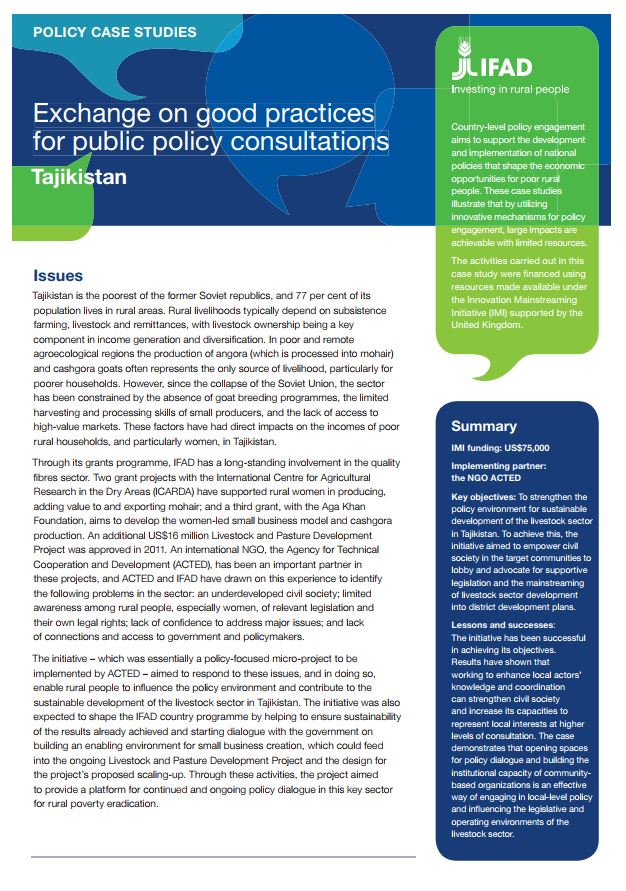Policy case study Tajikistan - Exchange on good practices for public policy consultations
Policy case study Tajikistan - Exchange on good practices for public policy consultations
August 2015
Tajikistan is the poorest of the former Soviet republics, and 77 per cent of its population lives in rural areas. Rural livelihoods typically depend on subsistence farming, livestock and remittances, with livestock ownership being a key component in income generation and diversification. In poor and remote agroecological regions the production of angora (which is processed into mohair) and cashgora goats often represents the only source of livelihood, particularly for poorer households. However, since the collapse of the Soviet Union, the sector has been constrained by the absence of goat breeding programmes, the limited harvesting and processing skills of small producers, and the lack of access to high-value markets. These factors have had direct impacts on the incomes of poor rural households, and particularly women, in Tajikistan.
